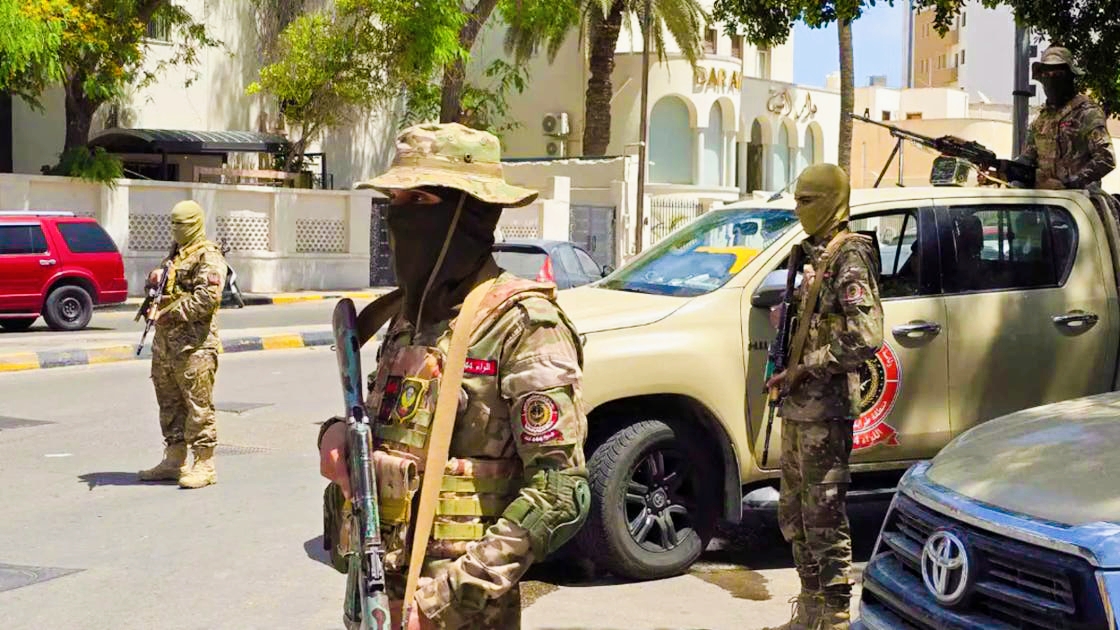In a surprising move aimed at easing the escalating security and military tension in the Libyan capital, Tripoli, the Government of National Unity led by Abdul Hamid Dbeibeh reached a security agreement with "the Deterrence Force", following weeks of intense tension and potential confrontations between the two parties.
According to sources reported today, Saturday, the agreement included several important security arrangements in Tripoli, the most notable of which is the handover of Mitiga International Airport to "Airport Protection Force", a step aimed at ending the disputed control over one of the most vital facilities in the capital.
The government also committed to withdrawing its military forces from the capital, directing these forces towards the cities of Misrata, Zliten, and Gharyan, in an attempt to reduce tension within Tripoli and avoid the outbreak of bloody clashes between the conflicting forces.
The agreement also includes an important clause stipulating the handover of the prisons that were under the control of "the Deterrence Force" to the Libyan Ministry of Justice, as part of a comprehensive plan to restructure security and institutional tasks in the country.
The Ministry of Justice and the judicial police will manage these prisons during the upcoming phase, reinforcing the principle of the state and official institutions at the expense of armed formations.
Sources confirmed that the agreement was directly sponsored by the Libyan Presidential Council and also included an understanding of wide-ranging security changes in Tripoli, which are expected to bring about a shift in the security and political landscape within the capital.
This development comes after rising tensions between militias loyal to Dbeibeh's government on one side and the opposing "Deterrence Agency" on the other, raising concerns about the outbreak of military confrontations within Tripoli, especially amid the security chaos witnessed in the western region of the country.
Observers hope that this agreement will represent a first step towards calming the internal conflict and prioritizing dialogue over confrontation, at a time when Libya is still searching for a stable path to emerge from its ongoing political and security crisis for more than a decade.

